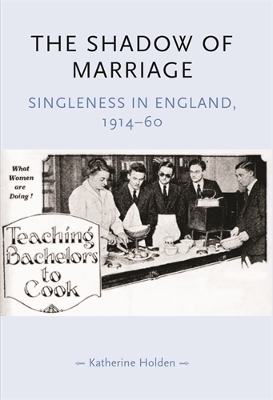Gender in History
1 total work
This book stakes out new territory within an exciting, emerging field of study. Not only does it uncover the history of a neglected group, but it also offers valuable insights into the significance of marital status which are equally relevant to current debates on marriage and family.
The book examines representations and experiences of men and women who never married between 1914 and 1960, drawing upon an exceptionally wide range of sources including biographies, oral histories, novels, films, government statistics and social surveys. An introductory chapter on work and non-familial lifestyles highlights the significance of age, generation and gender. The main focus in the rest of the book is on unmarried men and women's intimate, sexual, familial and professional relationships. These raise important questions about how these categories have been defined and expose power relations between married and single people. The material on adult/child relationships is particularly innovative. The author probes the boundaries of the nuclear family in the mid-twentieth century through her account of the high levels of interest and involvement in children's care and education by unmarried women as well as largely invisible relationships between children and unmarried men.
As the first major study of the history of single women and men in England, this will be a valuable resource for researchers and students in social history, gender studies, women's studies, social policy and sociology. Its accessible style and the inclusion of personal material from the author's life and family will undoubtedly also attract a wider readership.
The book examines representations and experiences of men and women who never married between 1914 and 1960, drawing upon an exceptionally wide range of sources including biographies, oral histories, novels, films, government statistics and social surveys. An introductory chapter on work and non-familial lifestyles highlights the significance of age, generation and gender. The main focus in the rest of the book is on unmarried men and women's intimate, sexual, familial and professional relationships. These raise important questions about how these categories have been defined and expose power relations between married and single people. The material on adult/child relationships is particularly innovative. The author probes the boundaries of the nuclear family in the mid-twentieth century through her account of the high levels of interest and involvement in children's care and education by unmarried women as well as largely invisible relationships between children and unmarried men.
As the first major study of the history of single women and men in England, this will be a valuable resource for researchers and students in social history, gender studies, women's studies, social policy and sociology. Its accessible style and the inclusion of personal material from the author's life and family will undoubtedly also attract a wider readership.
